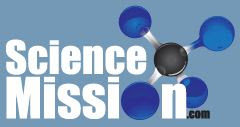Platinum-based chemotherapy,
which is used to treat advanced colorectal cancer, accumulates in the
healthy cells surrounding the cancer cells and, as a result, can reduce
tumor sensitivity to treatment. This is demonstrated by a study
published in the journal Nature Communications.
A large number of cancer patients are treated with platinum-based therapy. However, many tumors are capable of developing resistance to treatment. In this study, the researchers examined tumor samples from patients and pre-clinical models of colorectal cancer to better understand the resistance to platinum-based therapy. They observed that platinum accumulates prominently in the healthy cells that surround the cancer cells, particularly in fibroblasts, the cells that contribute to tissue formation. Furthermore, this accumulation persists for more than two years after treatment has been completed. This discovery was made using techniques developed in geology and applied to biological samples.
The researchers were able to demonstrate how the accumulation of platinum in the fibroblasts induced the activation of certain genes associated with a poor response to chemotherapy and tumor progression. Among them, the TGF-β protein redirected these fibroblasts to support cancer cells aggressiveness and resistance to treatment.
There are currently no predictive biomarkers of benefit from chemotherapy in colorectal cancer. The analysis of about thirty patients before and after chemotherapy presented in this study reveals that periostin levels are an indicator of TGF-β activity in fibroblasts and serve as a robust marker of response to chemotherapy. Indeed, treatment benefit was significantly reduced in patients with elevated periostin levels before and/or after chemotherapy. Accordingly, chemotherapy was found to be less effective in tumors with high levels of periostin in pre-clinical colorectal cancer models.
As a result, the first author of the study, states that, "we have discovered a mechanism of resistance to platinum-based chemotherapy and a marker of this resistance in patients with colorectal cancer". According to the author, this demonstrates the importance of considering the tumor microenvironment when developing cancer treatments. "Chemotherapies are currently evaluated based on their effect on cancer cells, not on the healthy cells that form the tumor microenvironment and protect the cancer cells," the author says.
The researchers are now working on developing a novel approach to improve the efficacy of chemotherapy in colorectal cancer. This new study pending publication is based on the combination of medication with a peptide preventing platinum accumulation in fibroblasts.
https://www.nature.com/articles/s41467-023-36334-1
http://sciencemission.com/site/index.php?page=news&type=view&id=publications%2Flong-term-platinum&filter=22
A large number of cancer patients are treated with platinum-based therapy. However, many tumors are capable of developing resistance to treatment. In this study, the researchers examined tumor samples from patients and pre-clinical models of colorectal cancer to better understand the resistance to platinum-based therapy. They observed that platinum accumulates prominently in the healthy cells that surround the cancer cells, particularly in fibroblasts, the cells that contribute to tissue formation. Furthermore, this accumulation persists for more than two years after treatment has been completed. This discovery was made using techniques developed in geology and applied to biological samples.
The researchers were able to demonstrate how the accumulation of platinum in the fibroblasts induced the activation of certain genes associated with a poor response to chemotherapy and tumor progression. Among them, the TGF-β protein redirected these fibroblasts to support cancer cells aggressiveness and resistance to treatment.
There are currently no predictive biomarkers of benefit from chemotherapy in colorectal cancer. The analysis of about thirty patients before and after chemotherapy presented in this study reveals that periostin levels are an indicator of TGF-β activity in fibroblasts and serve as a robust marker of response to chemotherapy. Indeed, treatment benefit was significantly reduced in patients with elevated periostin levels before and/or after chemotherapy. Accordingly, chemotherapy was found to be less effective in tumors with high levels of periostin in pre-clinical colorectal cancer models.
As a result, the first author of the study, states that, "we have discovered a mechanism of resistance to platinum-based chemotherapy and a marker of this resistance in patients with colorectal cancer". According to the author, this demonstrates the importance of considering the tumor microenvironment when developing cancer treatments. "Chemotherapies are currently evaluated based on their effect on cancer cells, not on the healthy cells that form the tumor microenvironment and protect the cancer cells," the author says.
The researchers are now working on developing a novel approach to improve the efficacy of chemotherapy in colorectal cancer. This new study pending publication is based on the combination of medication with a peptide preventing platinum accumulation in fibroblasts.
https://www.nature.com/articles/s41467-023-36334-1
http://sciencemission.com/site/index.php?page=news&type=view&id=publications%2Flong-term-platinum&filter=22

